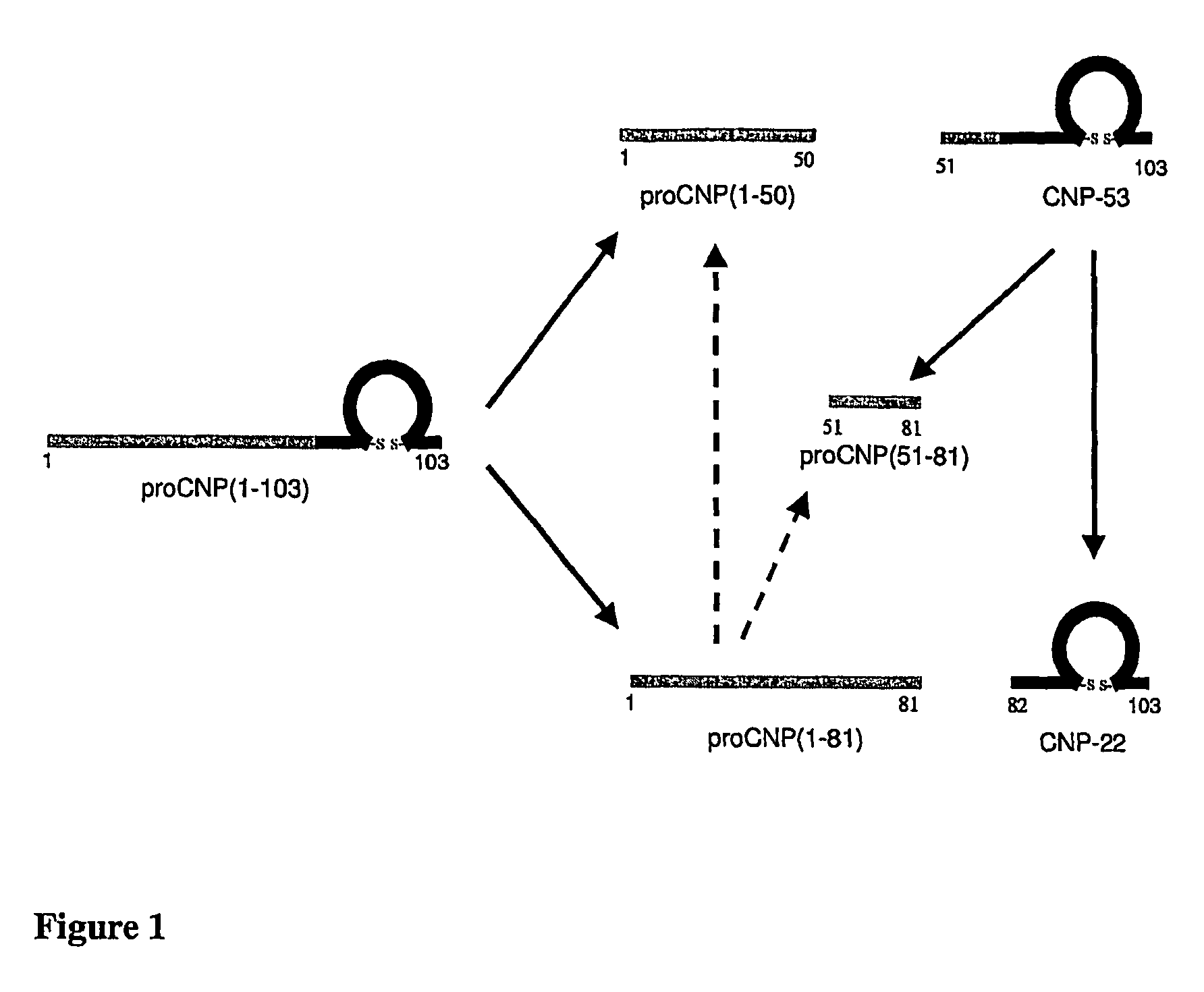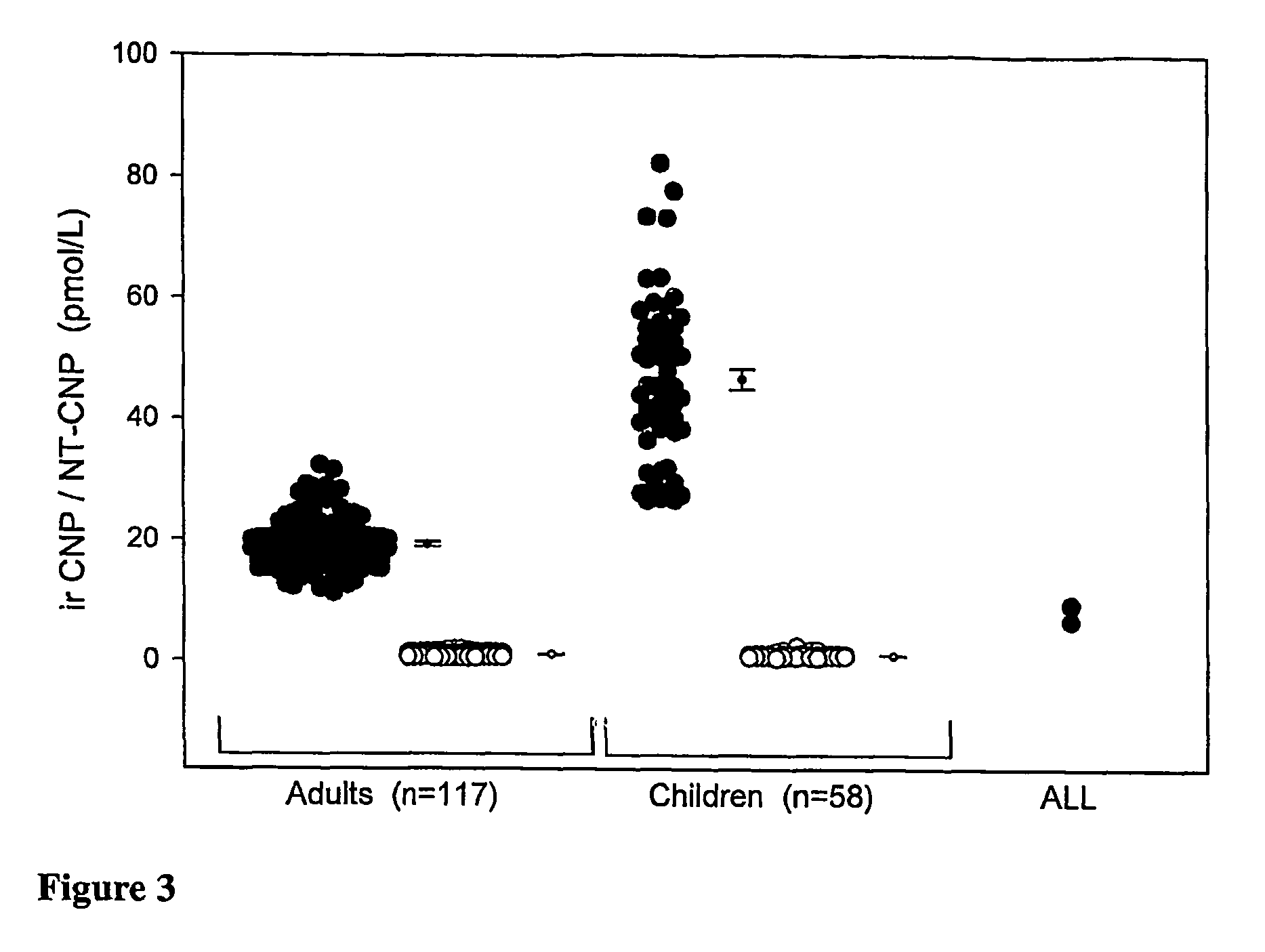Assessment of skeletal growth using measurements of NT-CNP peptides
a peptide and skeletal growth technology, applied in the field of aminoterminal cnp peptides, can solve the problems of high subjectiveness of the above process, inability to detect short-term changes in the activity of the growth plate using this technique, and the overdose of corticosteroids in patients, so as to minimize any adverse effect on skeletal growth
- Summary
- Abstract
- Description
- Claims
- Application Information
AI Technical Summary
Benefits of technology
Problems solved by technology
Method used
Image
Examples
examples
[0135]Peptides: Human NT-CNP(1-15), human NT-CNP(1-15)-Tyr16 and human NT-CNP(1-19) were synthesised by Mimotopes, Australia. Purity by mass spectrometry was 74%, 80% and 95% respectively.
[0136]Antiserum production: Human NT-CNP(1-15) (5 mg) was conjugated to 4.2 mg of bovine serum albumin (BSA, fraction V, GibcoBRL, Life Technologies) using 62.2 mg of 1-ethyl-3(3-dimethyaminopropyl) carbodiimide at pH 7 for 18 hours and dialysed against phosphate buffered saline. Rabbits were given a primary subcutaneous injection of the antigen after emulsification with an equal volume of complete Freunds adjuvant (Sigma Chemical Co., St Lois. Mo., USA). Subsequent injections using incomplete Freunds reagent were given at monthly intervals. Rabbits were bled two weeks after each injection and tested for binding of radioactive tracer and its displacement by NT-CNP (1-15) standards.
[0137]RIA for N-terminal CNP: NT-CNP(1-15)-Tyr16 (5 μg) was iodinated using 0.5 mCi Na125I in the presence of 10 μg chl...
PUM
| Property | Measurement | Unit |
|---|---|---|
| pH | aaaaa | aaaaa |
| pH | aaaaa | aaaaa |
| pH | aaaaa | aaaaa |
Abstract
Description
Claims
Application Information
 Login to View More
Login to View More - R&D
- Intellectual Property
- Life Sciences
- Materials
- Tech Scout
- Unparalleled Data Quality
- Higher Quality Content
- 60% Fewer Hallucinations
Browse by: Latest US Patents, China's latest patents, Technical Efficacy Thesaurus, Application Domain, Technology Topic, Popular Technical Reports.
© 2025 PatSnap. All rights reserved.Legal|Privacy policy|Modern Slavery Act Transparency Statement|Sitemap|About US| Contact US: help@patsnap.com



